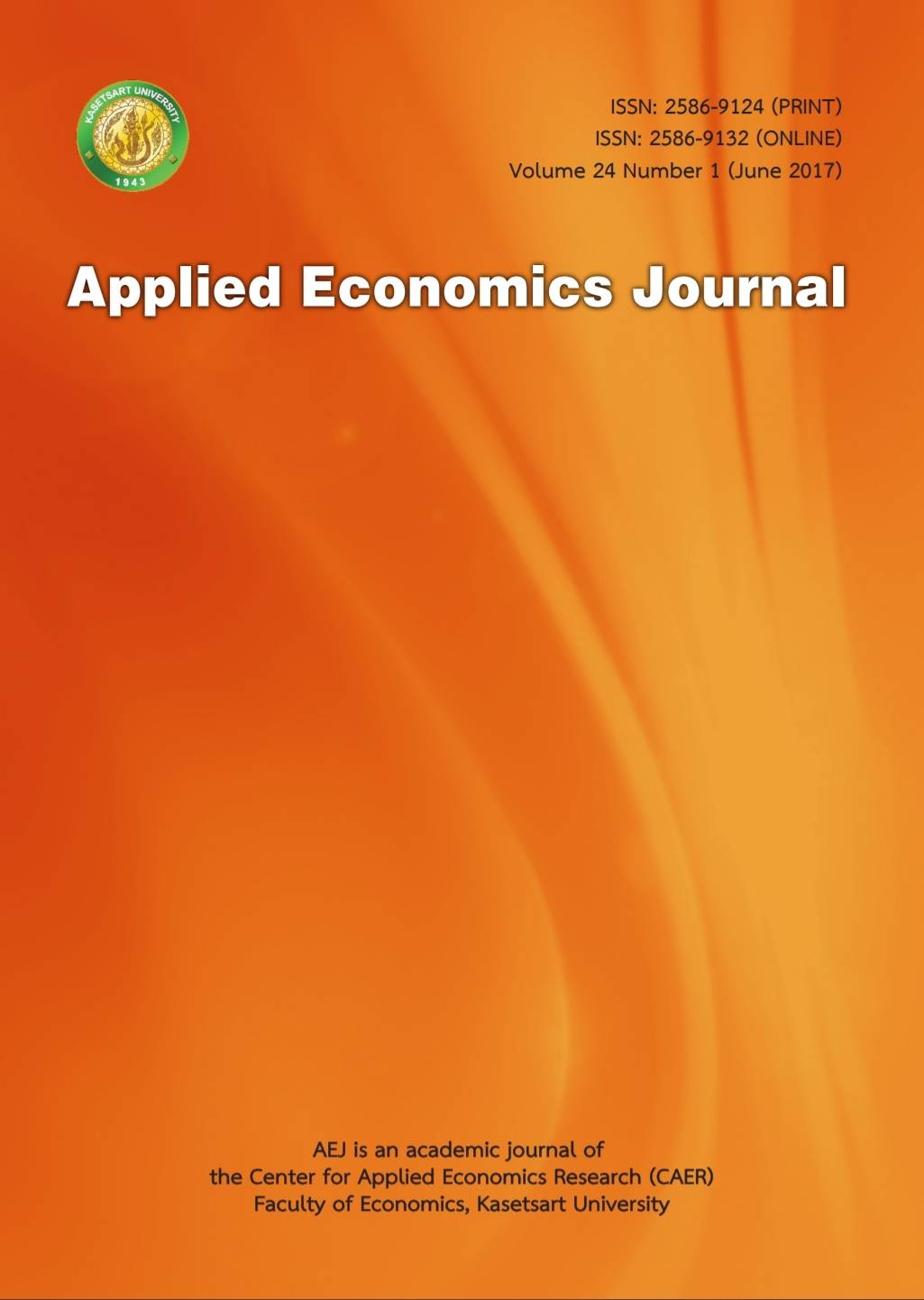Financial Sustainability of microfinance institutions that provide elderly social welfare
Main Article Content
Abstract
Microfinance in Thailand has been developed from being an institution that provides savings and loans into an institution that incorporates social welfare benefits for its members. These benefits are long-term liabilities of the funds and, therefore, can create solvency risk. This paper develops a mathematical model that evaluates the financial sustainability of the fund. The minimum rate of returns that the funds will have to generate in order to maintain its solvency is calculated. After comparing this measure with the actual rate of returns, we found that 13 out of the 40 villages in Trat are insolvent. The main reason of this insolvency is the low saving rates among fund members. It is not because of the high level of social welfare benefits. Therefore, if fund members realize the importance of a discipline in savings, it will encourage the long-term financial sustainability of microfinance in their area.
Article Details
The paper is published under CC BY-NC-ND, in which the article is freely downloaded and shared in its original form non-commercially and its citation details are identified.


